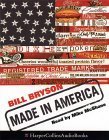
Dave Barry Slept Here: A Sort of History of the United States
Book Description
Nuclear missiles? Revolutionary wars? The American landscape is a battlefield of bizarre stories and wild antics. Dave Barry weaves a hilarious, irreverent journey through U.S. history, unveiling the absurdity lying beneath the serious facade. From outrageous early settlers to modern-day craziness, this book blends sharp wit with eye-opening insights that challenge everything you thought you knew. With each twist, it’s a rollercoaster ride through time, leaving you questioning the very foundation of American myths and legends. What if everything you learned about history is wonderfully wrong?
Quick Book Summary
Dave Barry Slept Here is a satirical romp through the history of the United States, where legendary columnist Dave Barry dismantles the solemnity of American history with sharp wit and absurdity. The book transforms pivotal moments—like the Revolution, the Civil War, and even recent events—into opportunities for comedic observation, revealing how truth and myth often blur in our collective memory. Barry’s irreverent take shines a light on the eccentricities of presidents, the hilarity of historical mistakes, and the American obsession with heroics, all while lampooning the ways history is taught and remembered. Ultimately, the book invites readers to laugh at the nation’s past and consider that what we learn is often as fictional as it is factual.
Summary of Key Ideas
Table of Contents
The Absurdity of American Myths and Heroes
From the so-called discovery of America to the dawn of modern times, Dave Barry systematically pokes fun at how American history is typically presented. He ridicules the solemn depictions of pilgrims and founding fathers, turning them into comically flawed humans with questionable motives and ridiculous habits. Barry’s relentless lampooning of early myths lays bare the tendency to sugarcoat or exaggerate history for the sake of national pride and textbook simplicity.
The Unreliable Nature of Historical Narratives
Barry addresses major historical events—The Revolutionary War, the drafting of the Constitution, the Civil War—through a deliberately inaccurate lens, making the failures, indecisions, and personal quirks of historic personalities the main feature. By inserting outlandish commentary and fictional newspaper headlines, he exposes the subjectivity and selectiveness of historical record-keeping, suggesting that textbook history is as much about storytelling as about objective fact.
Comedy as a Lens on Serious Events
Central to the book is Barry’s ability to use humor as a tool for both entertainment and subtle critique. He juxtaposes the gravity of events—wars, nation-building, political scandals—with outrageous anecdotes and anachronistic jokes. This comedic approach serves to demystify historical figures, encouraging readers to question why some stories are elevated to legendary status while others are glossed over or ignored.
The Eccentricities of American Politics
In exploring politics and progress, Barry lampoons presidential elections, congressional gridlock, and landmark legislation. He treats the quirks and blunders of American leaders as a series of slapstick episodes, highlighting the chaos and confusion often hidden beneath the veneer of reverence. Recurring jokes about slogans, campaigns, and government missteps reinforce the idea that even the most important moments are rife with absurdity.
Questioning What We Learn and Remember
The book’s overarching theme is a playful challenge to accepted knowledge. By blending fact with exaggerated fiction, Barry mocks the rigidity of the educational system and the willingness of Americans to accept simplified narratives. Ultimately, the book serves as a reminder that history is not only written by the winners—but is also retold by the comedians, pointing out that often, what we know isn’t quite as real as we think.
Download This Summary
Get a free PDF of this summary instantly — no email required.





